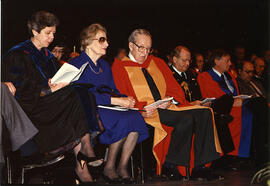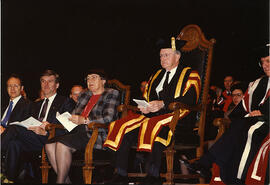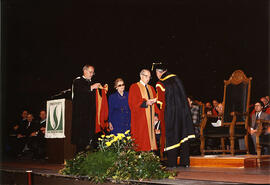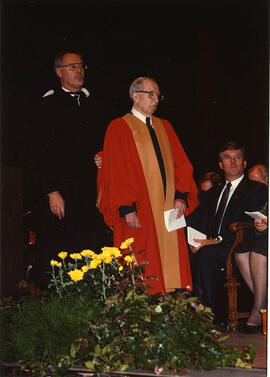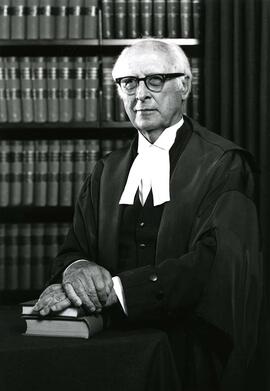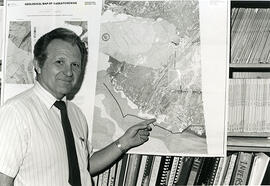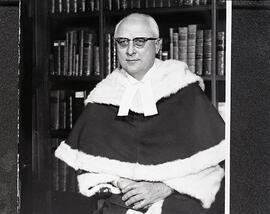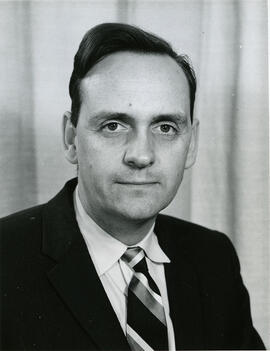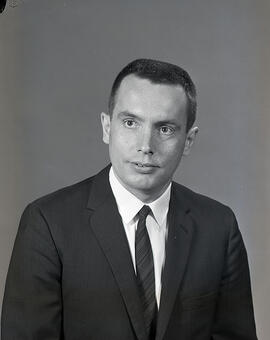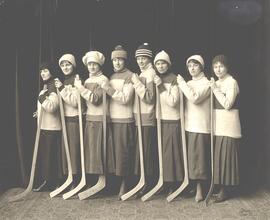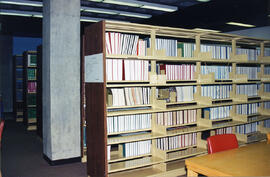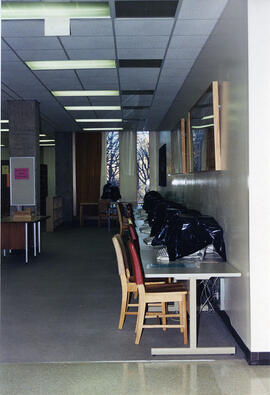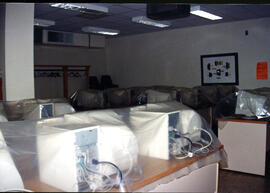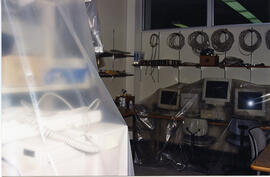Honourary Degrees - Presentation - J.W.T. Spinks
- A-10321
- Stuk
- Oct. 1990
J.W.T. Spinks (third from left), fourth University President, waits to be awarded an honourary Doctor of Laws degree during the fall Convocation held at Centennial Auditorium. From l to r: Gwenna Moss, Acting Vice-President (Academic); Mary Spinks, and Dr. Spinks.
Bio/Historical Note: John William Tranter Spinks was born in 1908 at Methwold, England. He received his PhD in Science from the University of London in 1930 and that same year joined the University of Saskatchewan as assistant professor of Chemistry. While on leave in Germany in 1933 he worked with Gerhard Herzberg, future Nobel prize winner in Chemistry, and was instrumental in bringing him to Canada. In 1938 Dr. Spinks became a full professor of Chemistry. During WWII Dr. Spinks developed search-and-rescue operations for the RCAF and took part in the early work on atomic energy. His scientific research led to major international achievements in radiation chemistry and his work included over 200 scientific papers. Dr. Spinks was appointed head of the department of Chemistry in 1948; Dean of the College of Graduate Studies in 1949 and was installed as President of the University, which he led through a very active period of development from 1959-1975. Dr. Spinks received many honours: Companion of the Order of Canada (1970); the Saskatchewan Agricultural Hall of Fame (1982), Saskatoon's Citizen of the Year (1985), and the Saskatchewan Order of Merit (1996). He married Mary Strelioff (1910-1999) on 5 June 1939 in Rugby Chapel on the U of S grounds. Dr. Spinks died in 1997 in Saskatoon at age 89. The north-facing four-storey Spinks Addition is home to the departments of Computer Science and Chemistry. It was completed in 2003. Spinks Drive in College Park honours Dr. Spinks. The University of Saskatchewan open source computer labs were named the Spinks Labs.

